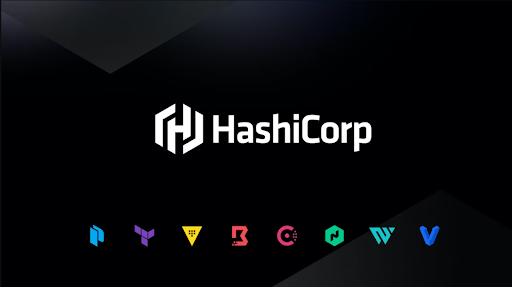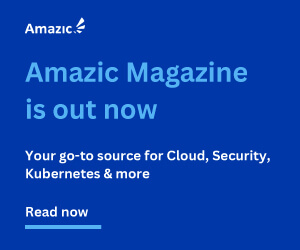HashiCorp is a once-in-a-generation company that helps organizations shift to the cloud. The company offers solutions to provision, secure, connect, and run business-critical applications that help deliver essential services, communications tools, and entertainment platforms worldwide. HashiCorp focuses on assisting organizations in operating with a suite of multi-cloud infrastructure automation products built with open-source projects at their core. Taking an open-source approach, the company believes in building communities around open source projects.
HashiCorp products are widely popular among IT practitioners and have been downloaded more than 100 million times yearly. Over the last month, HashiCorp released several updates to their commercial offerings, including Terraform, Vault, Consul, Nomad, and other open-source projects for HashiCorp Vagrant, Packer, Boundary, and Waypoint. Here is a quick summary of all the recent updates across various HashiCorp products.
Boundary
HCP Boundary is a fully managed version of HashiCorp Boundary that is now available as a Software-as-a-Service (SaaS) solution on the HashiCorp Cloud Platform (HCP). First released as an open-source project in October 2020, Boundary helps organizations securely access critical systems remotely with fine-grained authorizations based on trusted identities. HCP Boundary bolsters zero trust security with an automated workflow that gives users easier remote access to critical infrastructure. The solution combines a single-click deployment experience with the operational hardening of production service, including enterprise support, security hardening, and SLAs for service availability.
Waypoint
Waypoint is an application deployment tool from HasiCorp that aims to deliver a Platform-as-a-Service (PaaS) experience for various platforms, including HashiCorp Nomad, Kubernetes, and Amazon ECS. The latest update, Waypoint 0.10, adds several new features, including the tech preview of custom pipelines and a new CLI command to remove existing projects and their created resources. The update also introduced several enhancements to the Nomad/Waypoint server and deployment plugin integrations.
Consul
HashiCorp Consul is a service networking solution that allows users to discover and securely connect any application. In October, HashiCorp released Consul 1.14, introducing three new features – enhanced traffic management and failover, and Consul on Kubernetes. The latest update will remove the need to run Consul clients using a DaemonSet and allow users to deploy the Consul dataplane as a sidecar container alongside existing workload pods. The Consul dataplane component will be responsible for discovering and watching the Consul servers available to the pod while managing the initial Envoy bootstrap configuration and execution of the process. Simply put, the Consul dataplane’s design eliminates the need to run Consul client agents, simplifies deployment, boosts flexibility, and improves operational efficiency.
Vault
Protecting sensitive data at rest is a fundamental task for database administrators, enabling many organizations to follow industry best practices and comply with regulatory requirements. Vault from HashiCorp provides secrets management, data encryption, and identity management services for any application on any infrastructure. One of the main components of Vault is Transform, which allows Vault to use data transformations and tokenization to protect secrets stored in untrusted or semi-trusted systems. The recent Vault 1.12 update will focus on improving Vault’s core workflows and adding various new features, such as
- Redis and Amazon ElastiCache secrets engines
- A new PKCS#11 provider
- Improved Transform secrets engine usability
- Updated resource quotas
- Expanded PKI revocation and telemetry capabilities
- Terraform provider for Vault:
- Vault usage metrics:
- Licensing enhancement (Vault Enterprise):
- AAD Graph on Azure Secrets Engine removed:
- X.509 certificates with SHA-1 signatures support removed:
- Standalone database engines impacted the experience
- AppID impacted experience
[Tip: If you’d like to listen to an in-depth discussion on secrets management with Vault, watch our recent podcast interview with Sarah Polan, Field-CTO at HashiCorp]
Terraform
Migration to the cloud has led organizations to adopt infrastructure automation to provision and manage their cloud resources. As organizations scale, they face challenges around maintaining code health and visibility, coping with inefficient manual workflows, and mitigating security or compliance issues. HashiCorp Terraform helps organizations improve productivity, reduce risk, and increase business velocity as they integrate the cloud into their IT environments. The Terraform enhancements introduced in October 2022 will help address many of the issues users face in their organizations while standardizing their infrastructure automation for multi-cloud. Cloud Development Kit for Terraform (CDKTF) 0.13 reduces synth time across all supported languages. The CDK for Terraform 0.13 increases performance in a language-agnostic way to enhance performance.
Nomad
Nomad is a simple and flexible orchestrator from HashiCorp that works on both on-premises and cloud environments to deploy and manage containers and non-containerized applications. With the Nomad 1.4 update, users can store encrypted configuration values, also called Nomad Variables, at file-like paths directly in Nomad. These values can then be used across various workloads in clusters, making configuration management simple in Nomad 1.4. Nomad 1.4 also allows users to configure health checks for native Nomad services, giving users more fine-grained control over service discovery logic and deployments. This update also improved the Nomad UI to make navigating to specific tasks and viewing logs easier.
Vagrant
HashiCorp Vagrant provides the same easy workflow regardless of the user’s role. Vagrant mirrors production environments by delivering the same OS, packages, users, and configurations, while allowing users to use their preferred editor, IDE, and browser. Vagrant also integrates with existing configuration management toolings like Chef, Ansible, Puppet, Docker, or Salt, allowing users to use the same scripts to configure Vagrant as production. The recent update, namely HashiCorp Vagrant 2.3, is the first step in the path to 3.0 and in porting Vagrant from Ruby to Go. The newly introduced Vagrant executable is written in Golang that ties the Vagrant architecture into the broader HashiCorp ecosystem.
In a short span of time, HashiCorp has shown promise and become one of the interesting cloud-native startups to look out for. While new companies are entering the space, the range of products and offerings from the company will keep them in the lead. Similarly, HashiCorp’s growth is looking positive as the need for cloud computing and infrastructure-as-code continues.
If you have questions related to this topic, feel free to book a meeting with one of our solutions experts, mail to sales@amazic.com.



